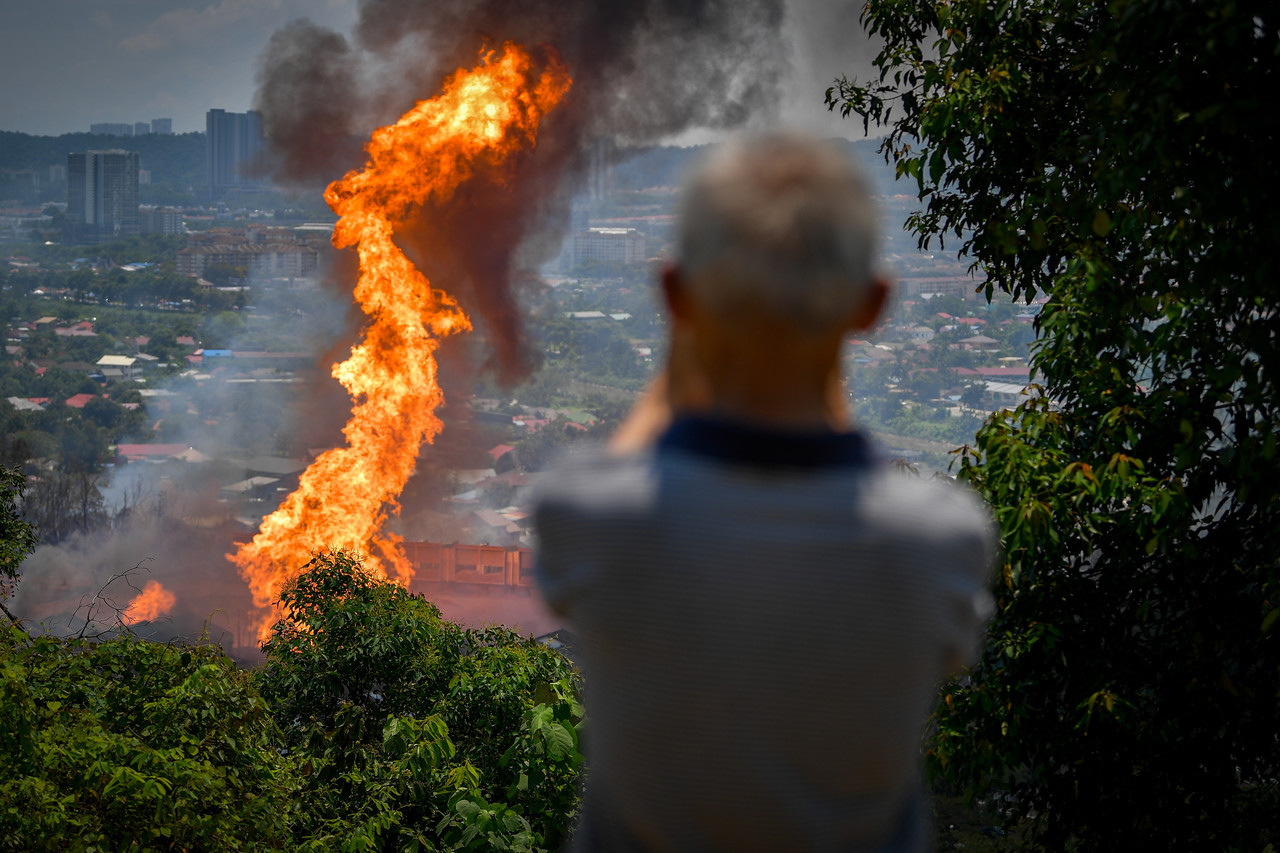I REFER to the report by Scoop: “Putra Heights blast: don’t fully depend on cops, bring in agencies and professionals, urges lawmaker“.
I agree with Taman Medan assemblyman Dr Afif Bahardin that the technical committee investigating the recent gas pipeline leak incident in Putra Heights must involve agencies and professional bodies such as the Board of Engineers Malaysia and the Institute of Public Works Malaysia (Ikram).
It must be remembered, though, that there are laws and regulations on gas installations, which constitute only a part of the law and regulations on the supply of gas in the country.
The main law is contained in the Gas Supply Act 1993 (Act 501) (the Act). The act provides “for the licensing of the import into regasification terminal, regasification, shipping, transportation, distribution, retail or use of gas in the supply of gas through pipelines and related matters, the supply of gas at reasonable prices, the control of gas supply pipelines, installations and appliances with respect to matters relating to safety of persons in the distribution, retail or use of gas and for purposes connected therewith”.
The act came into force on July 17, 1997. Section 39 of the act empowers the minister to make regulations in respect of any matter which may be prescribed under the act, pursuant to which the Gas Supply Regulations 1997 (PUA 287/1997) were gazetted to be in force from the same date – that is, July 17, 1997.
Four years after the coming into force of the Act, Parliament passed the Energy Commission Act 2001 (Act 610) (ECA) to provide for the establishment of the Energy Commission (Suruhanjaya Tenaga) with powers to regulate the energy supply activities in Malaysia, and to enforce the energy supply laws, and for matters connected therewith.
Under Section 2 (Interpretation) of ECA, “energy supply laws” means:
(a) the ECA and any subsidiary legislation made under the ECA
(b) the electricity supply laws
(c) the gas supply laws
(d) any other written law under which the Energy Commission is to exercise any function.
“Energy supply activities” includes, in relation to gas:
(a) the supply and use of gas to which the gas supply laws apply
(b) the delivery, transportation, distribution and reticulation of gas for the supply and use of gas under (a)
“Gas supply laws” means the Gas Supply Act 1993 and includes:
(a) any subsidiary legislation made under the act
(b) any other legislation relating to gas under which the Energy Commission is to exercise any function, including any subsidiary legislation made under such legislation.
Section 3 of ECA establishes an Energy Commission or Suruhanjaya Tenaga (ST). The functions and powers of the ST are set out in Section 14 of ECA. Its functions include:
(a) to advise the minister on all matters relating to the supply of gas through pipelines and the use of gas as provided under the gas supply laws
(b) to regulate all matters relating to the supply of gas through pipelines and to protect any person from dangers arising from the supply of gas through pipelines and the use of gas as provided under the gas supply laws.
The ST has all such powers as may be necessary for, or in connection with, or reasonably incidental to, the performance of its functions under the energy supply laws.
Since the functions and powers of the ST include matters relating to the supply of gas through pipelines and the use of gas as provided under the gas supply laws, reference must be made to the act and regulations made under the act.
Section 2 (Interpretation) of the act defines “danger” as “danger to health or human life or limb from shock, burn, or other injury and includes danger to property, pipeline or installation resulting from distribution, retail or use of gas”.
The point is this: the massive gas pipeline fire, causing widespread damage and prompting emergency evacuations, is the kind of danger that the ST has a statutory duty to protect the public from under the ECA.
Curiously, the ST has not been heard since the fire, which has been called an inferno, broke out on Tuesday (April 1).
This is not about finding fault in anyone but about standing up to one’s statutory duty. The duty must be given and trusted based on expertise, like the expertise on anti-corruption in the Malaysian Anti-Corruption Commission (MACC).
The ST’s expertise should help in investigations into the inferno. Over and above that, the ST is the regulatory body which has been given statutory powers of investigation.
If Dr Afif thought that the police alone were enough to investigate the inferno, then I would like to think that it is the ST which should lead or coordinate the investigation, exercising its powers under the Energy Commission Act 2001.
Much like the MACC exercising its powers under the MACC Act 2009. – April 12, 2025
Hafiz Hassan reads Scoop

